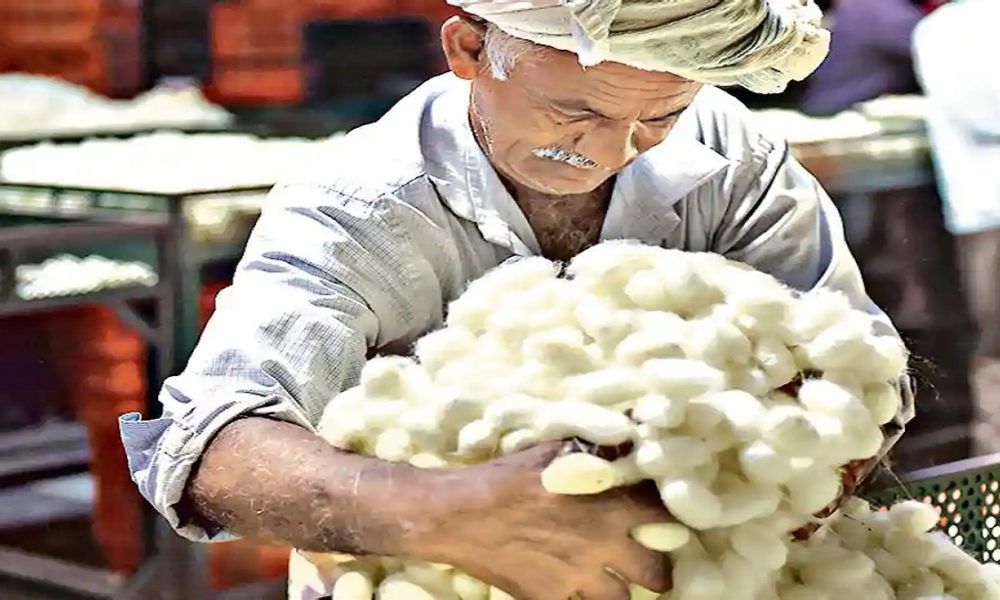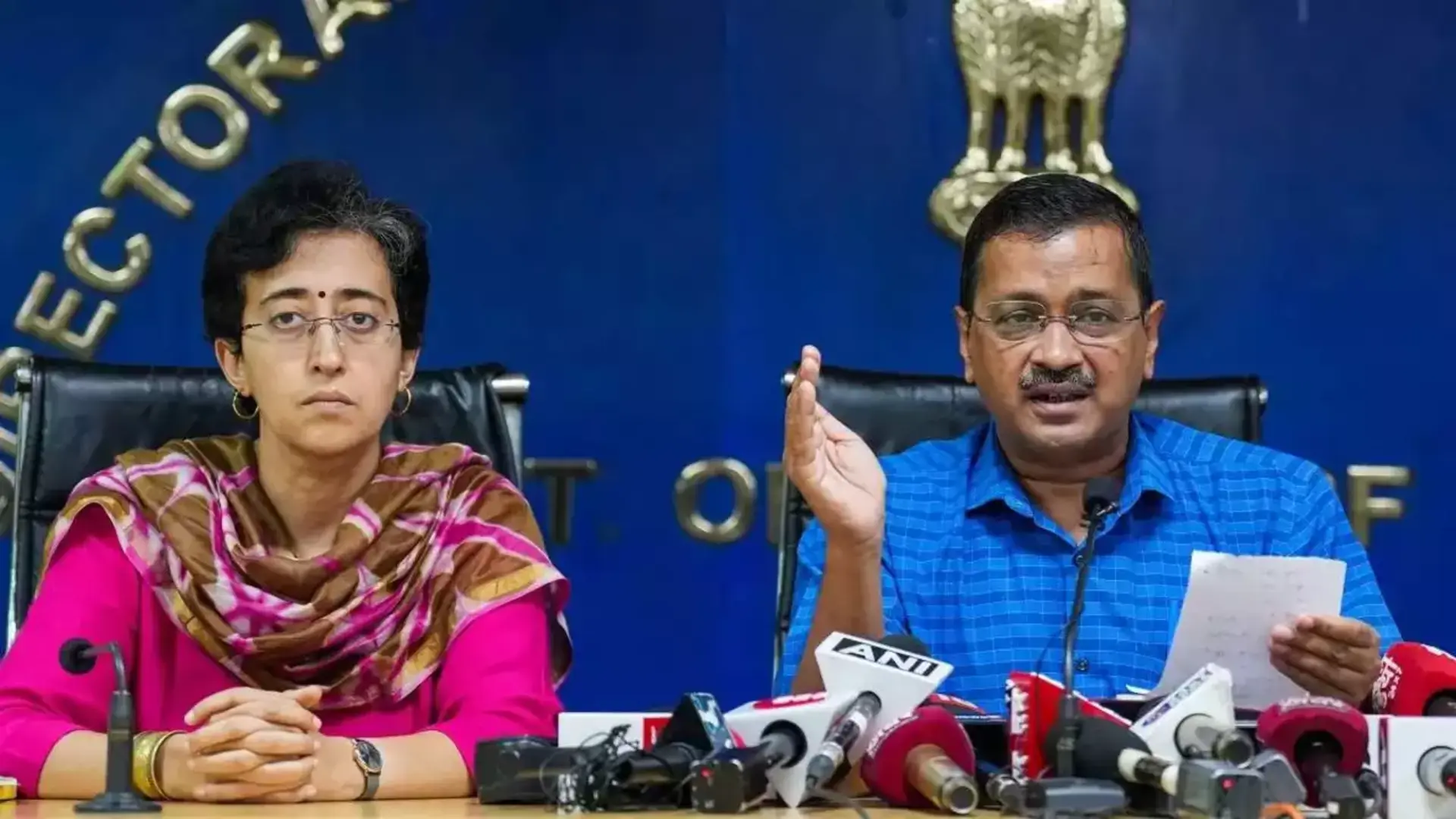The farmer is the only man in the economy who buys at retail, sells everything at wholesale, and pays the freight both ways. This line by John F. Kennedy reflects the pain which a farmer faces in conducting his trade. The farm bills which passed through Rajya Sabha on Tuesday amidst great opposition from various parties and high voltage drama in the Upper House seeks to bring revolutionary changes in the trading process of farm produces. Farmers have showed up in huge numbers on the roads of Punjab, Haryana, Uttar Pradesh and many other states across the nation to show their dissatisfaction against these bills. Adding flare to the agitation Union Minister for Food Processing Industries, Harsimrat Kaur Badal resigned from the Central Government in solidarity with the farmers. The big question which arises is whether the leaders of such farmer groups which are up in arms against the bills really want to bring about change in the lives of the farmer or are just masquerading as the farmers to get political mileage. The bills which are due to presidential assent are The Farmers’ Produce Trade and Commerce (Promotion and Facilitation) Bill, 2020, the Farmers (Empowerment and Protection) Agreement on Price Assurance and Farm Services Bill and The Essential Commodities (Amendment) Bill, 2020. These bills aim to channelize the trade of farm produces directly between the farmer and the buyer leading to economic welfare of the farmers. It is a very historic moment in the Indian agricultural scenario which seems to bring a revolutionary change just like the 1991 liberalisation and globalisation phase.
Farmers’ Autonomy
Terming the present three bills which are due for assent by the president of India, as “anti-farmer” bills is a rhetoric completely made in ignorance. These bills are rather providing flesh and blood to a farmer’s right to trade, commerce and intercourse as enshrined under Article 19 of the Constitution and Article 301 of the Constitution. The existing framework was set up by different state governments for the regulation of trade and commerce of agricultural produce, which is done through Agricultural Produce Marketing Committees (APMCs). This framework is hit by many deficiencies such as cartelization by APMC agents which lead to a non-transparent price fixation mechanism and paying variety of tax and cess which leads to up the total value of their farming cost. Additionally the existing framework creates a highly anti-competitive market system where there is rampant red tapism through licencing of traders, making it very difficult for a new trader to join in.
The new farm bills seeks to create an alternate trading atmosphere which will be more conducive for the farmers and based on the principle of laissez faire attracting minimal governmental intervention. It aims to remove all the barriers and restrictions imposed on the trading autonomy of a farmer. The new farm bills are going to amplify the magnitude of the fundamental right to trade of the farming community in its fullest sense.
Art. 19 of our Constitution ensure the freedom to practise any profession, or to carry on any occupation, trade or business. Moreover, Art. 301 ensures freedom of trade, commerce and intercourse throughout the territory of India. A conjunctive reading of Article 19 and Article 301 paints a greater constitutional mandate regarding an individual’s freedom to trade by supplementing it with freedom to trade inter-state or intrastate both. The definition of ‘trade area’ as per Clause 2(m) of the Farmers’ Produce Trade and Commerce (Promotion and Facilitation) Bill, 2020 specifically excludes “market yards, sub-market yards and market sub-yards managed and run by the market committees formed under each state APMC (Agricultural Produce Market Committee) Act” and “private market yards, private market sub-yards,direct marketing collection centres, and private farmer-consumer market yards managed by persons holding licenses or any warehouses, silos, cold storages or other structures notified as markets or deemed markets under each State APMC Act in force in India”. In the existing framework due to reasonable restrictions, a farmer could only trade in the mandis regulated by the APMCs. But with coming of these bills into force, the farmers will have a choice to trade inside their outside that area with their free will and without any unnecessary obligations. It also allows farmers to freely trade through electronic medium. It aims to reduce the total farming cost which a farmer incurred in the existing framework by abolishing any kind of market fees charged by the state government subject to trade takes place outside the APMC market.
Now a farmer will have negotiating power as regards to price of his produce. He can bargain the amount to his benefit and not just settle at the amount manipulated by existing trader cartels. He can participate in an agricultural market which is open to competition and not just controlled by a few big players. The Farmers (Empowerment and Protection) Agreement on Price Assurance and Farm Services Bill, 2020 seeks to provide the farming community with a significant role to play in the agricultural market and not just be a raw material provider surrendered at the hands of agents and traders. It seeks to bind farmer and buyer in an agreement which takes place prior to production and price fixation is done with the consent of both the parties. This is known as ‘Contract Farming’. Such type of farming provides a farmer with benefits like there is drastic reduction of price related risk because they have already the price to their benefit. Any volatile market situation will not affect their pre-defined right to a certain amount of money. Many farmer groups are apprehensive that they will not get the appropriate amount for their produce. Their fear is also valid as it seems to them that they will not even receive the Minimum Support Price as big corporations may use their influence to get the agreement signed at a lower price. But all these fears should not exist as these bills are not here to replace the already existing framework of APMCs but to give an alternative which respects a farmer’s individual autonomy. If a farmer experiences that he is not able to get a price worth of his produce then he has the option to conduct his trade at the mandis setup by the APMCs. The sole aim of these bills is to recognize the individual autonomy of a farmer in conducting trade of his hardly grown produce. Another big advantage of this contract farming is going to be linkage of agreement with credit or insurance schemes of central or state governments. Now the farmers will not be dependent on local moneylenders for quick loans which led such farmers into a debt trap and with this linkage there will be a huge risk mitigation in the favour of farmers.
Dispute Resolution
After introduction of these bills into the parliament there was a huge hue and cry across the nation against introduction of ‘contract farming’. It is being perceived that due to unequal bargaining powers between a corporation and a small farmer, the agreement may heavily favour the interest of corporations and be detrimental for poor and illiterate farmers. But these doubts are really uncalled for because the bill already provides enough safeguard through its provisions from Sections 3 to 12. The biggest problem is when there are parties with unequal bargaining powers, the party with the high bargaining power like corporations draft boilerplate contracts and insert dispute resolution clauses which bends in their favour and party with a lower bargaining power is kept away from justice. The Farmers (Empowerment and Protection) Agreement on Price Assurance and Farm Services Bill, 2020, introduces a dispute resolution provision to cure this mostly used method to deny access to justice to party with a lower bargaining power. It is a big step in the direction of providing access to justice to the farming community by introducing conciliation as a method of dispute resolution. It saves a farmer a whole lot of money and time by keeping him away from litigation. Now a farmer could resolve his agricultural dispute in a speedy manner without knocking the heavy doors of courts.
The power-sharing gauntlet
Post-tabling the concerned farm bills, the Upper house witnessed opposition admonishing the bills on the account that it was a brazen attack on the federal structure of our constitution. It is hereby rebutted that the concerned bills do not in any case breach the constitutional limits. Moreover, they bolster the idea of cooperative federalism.
The legislative power sharing between the centre and the state has been enunciated in seventh schedule of our constitution. The seventh schedule of the Indian constitution has three lists. List I refers to the subjects under the Centre or the Union, List II refers to the state list and List III refers to the concurrent list where the states and the Centre are co-sharers of power and responsibility.
Entry 33 of the Concurrent List says that Centre and the States have powers to control production, supply and distribution of products of any industry, including agriculture. Further, Entry 34 of the concurrent list deals with price control. Conjunctive reading of Entry 33 and Entry 34 connotes that the centre has power to make laws on trade and commerce in production, supply and distribution of products of agricultural industry and further on fixation of the prices. Constitutional propriety of Centre to make laws on agricultural products flows from the above mentioned entries of Concurrent List. Thus, the centre in no way is encroaching upon the laws making powers of the state.
Moreover, the concerned farm bills do not crumble upon the idea of cooperative federalism envisaged by our constitution. The above proposition can be well elucidated by the following stance:
1. Agricultural Produce Market Committee i.e. APMCs are established by a state government though their respective state legislations. APMCs are physical market places where farmers are required to bring their produce to the market if they have to sell it there. Gradually, these APMC’s have become de facto monopolies because of the fact that almost all farmers used these markets to sell their produce which resulted in no serious competitions.
2. Farmers Produce Trade & Commerce (Promotion & Facilitation) Bill, 2020 seeks to ameliorate the mischief created by the state APMCs. The concerned bill allows intra-state and inter-state trade of farmers produce outside: (i) the physical premises of market yards run by market committees formed under the state APMC Acts and (ii) other markets notified under the state APMC Acts.
What can be construed is that Farmers Produce Trade & Commerce (Promotion & Facilitation) Bill, 2020 will eliminate the restriction that used to be imposed by the state APMC’s. It seeks to demolish the dens of monopolistic power which throttle the Indian farmer. The concerned bill creates a legal framework to set up markets that will run parallel to what the states have established through APMCs. Thus, it in no way, restricts the operation of the state APMC’s. What is does is that, it expands the horizons of options for the Indian farmers to sell their produce.
Cooperative federalism, also known as marble-cake federalism, is a concept of federalism in which federal, state, and local governments interact cooperatively and collectively to solve common problems, rather than making policies separately but more or less equally. This step significantly bolsters the notion of cooperative federalism in a way that, now, the farmers will have two recourses, i.e. either to sell their produce through the state established APMC’s or do it individually by virtue of Centre’s Farmers Produce Trade & Commerce (Promotion & Facilitation) Bill, 2020. Thus, the concerned bill seeks to establish the harmony between the centre and state.
Concluding Remarks
The bills which are being protested are not ‘antifarmer’ but those who are protesting these bills are certainly ‘anti-farmer’, they are trying to impede the positive change which is going to boost the economic condition of farmers. The farm bills aim to enhance the scope and freedom of farmers to trade. The Government has introduced these bills to further enlarge the individual autonomy of farmers to trade as guaranteed under Article 19(1)(g). India is witnessing the epitome of co-operative federalism wherein without any kind of encroachment on the State’s framework; the Centre has carved an alternative method for the welfare of farmers. Both the frameworks are mutually exclusive of each other. The Farm Bills are breaking the chains of cartelization and licencing away from the farmers which stood in the path of their glory. The economic boost which the farmers will now experience will never let a food provider die of hunger.














